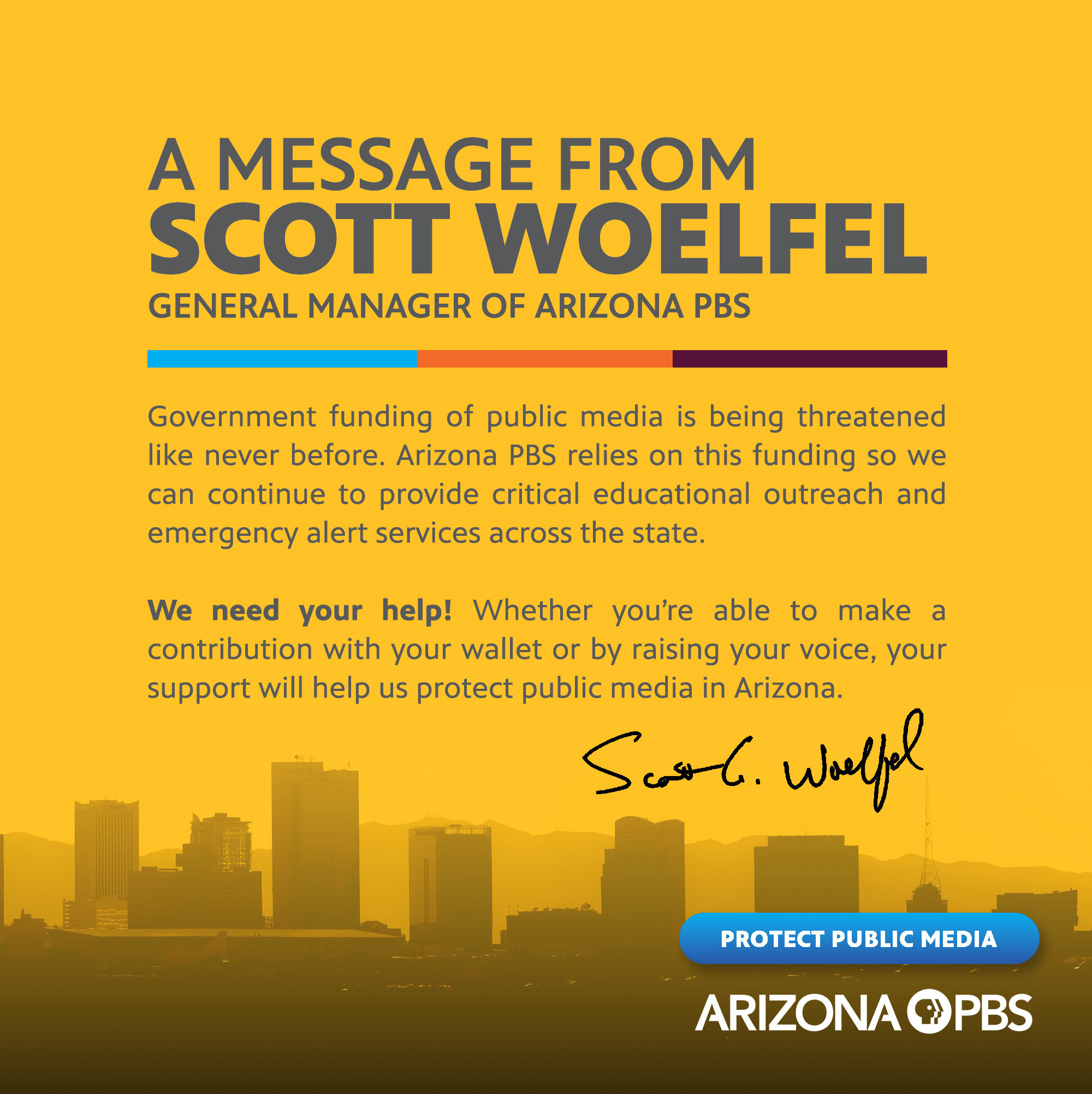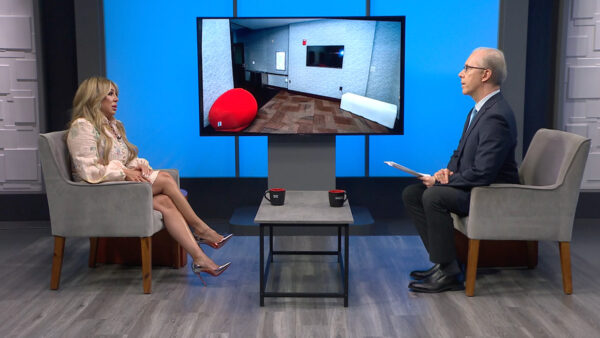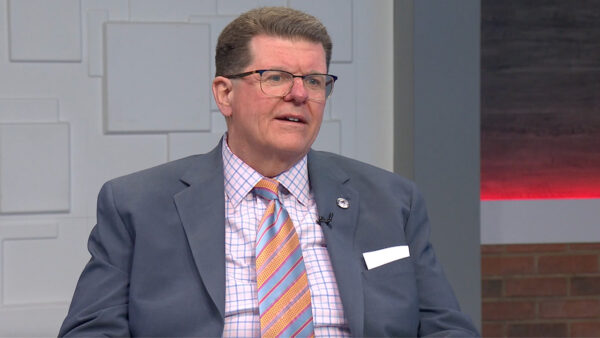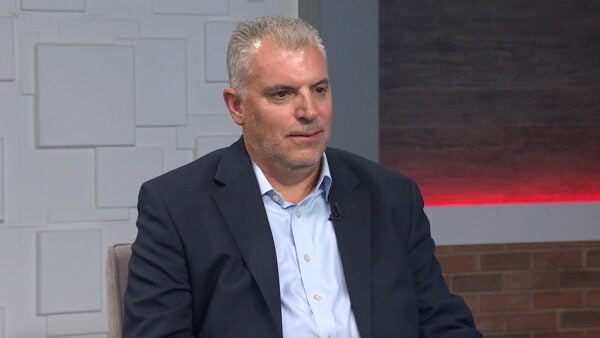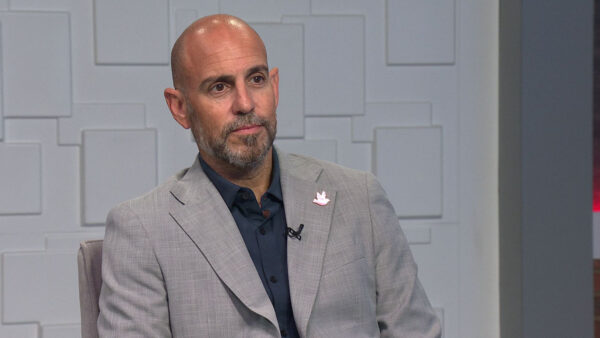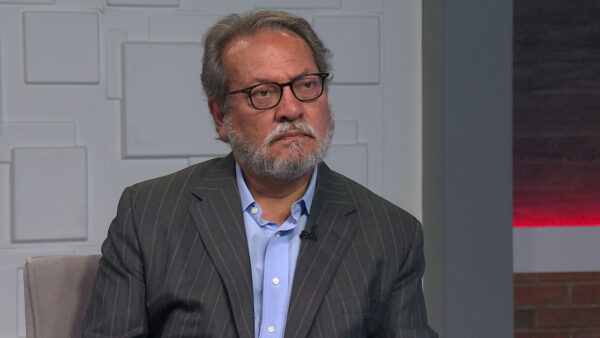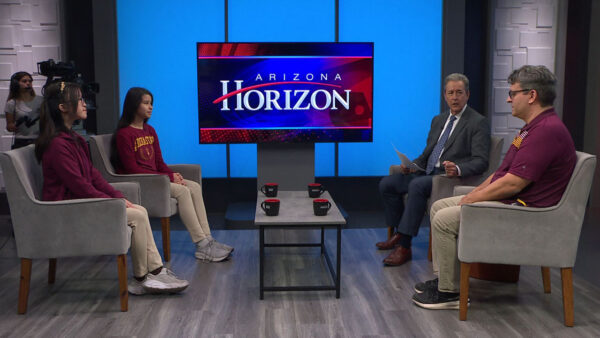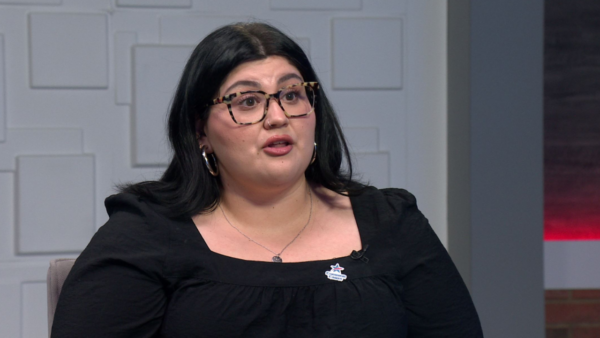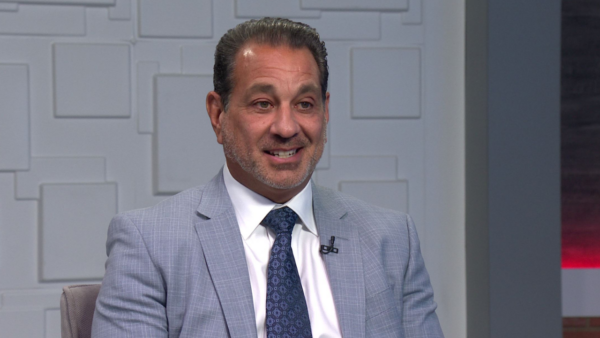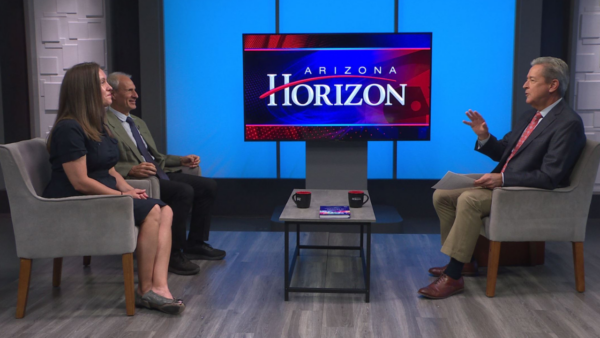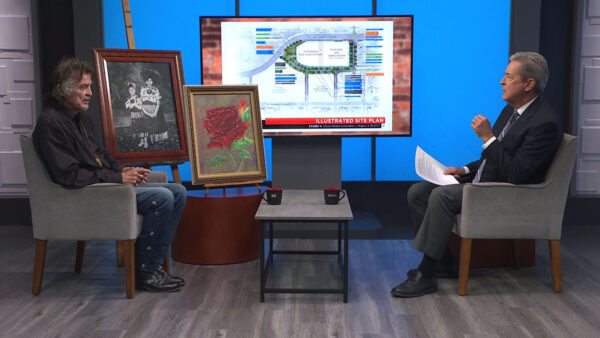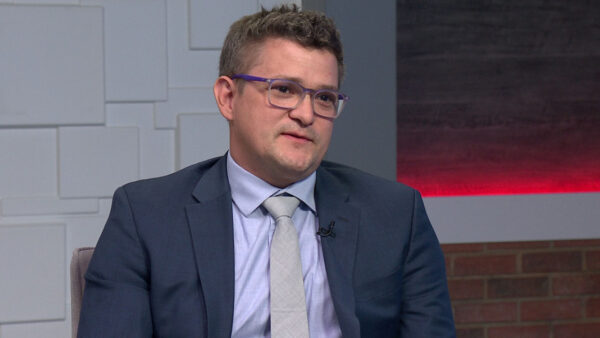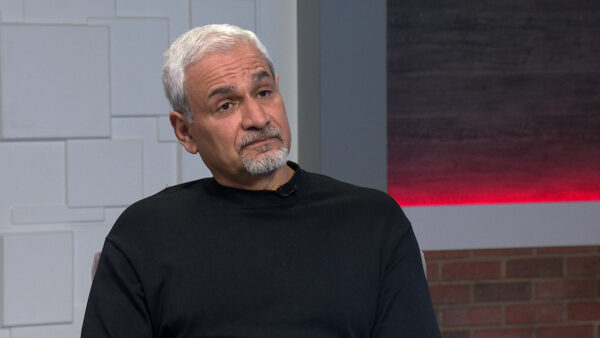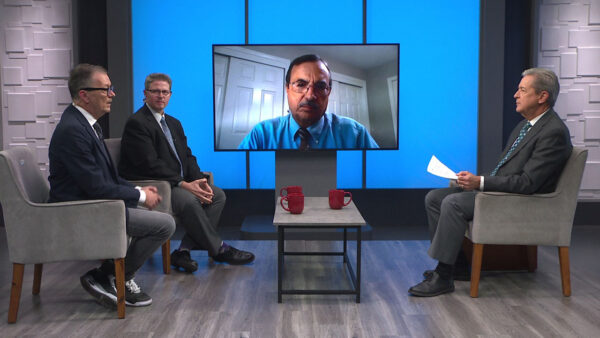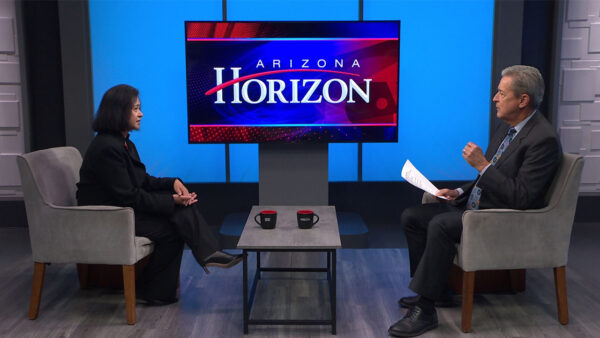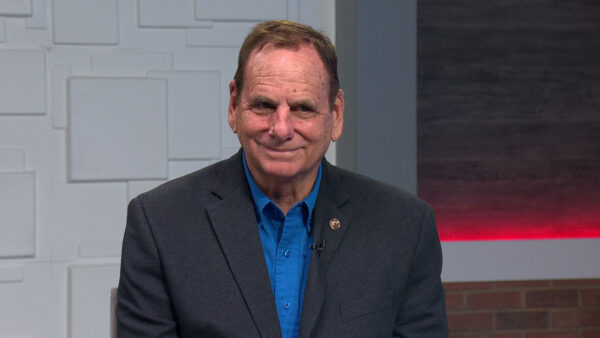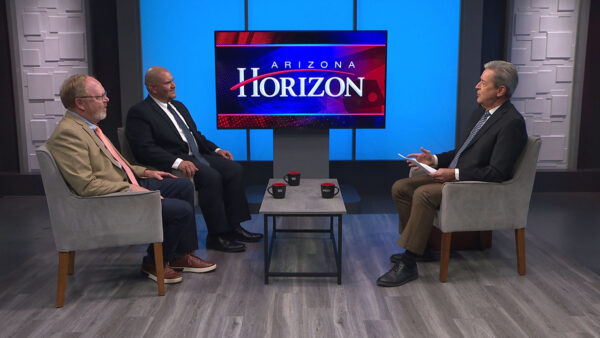Although home sales are currently lower right now than at this time last year, recovery may be around the corner. Mike Orr, director of the Center for Real Estate Theory and Practice at the W. P. Carey School of Business, will discuss his latest report.
Ted Simons: Good evening, and welcome to "Arizona Horizon." I'm Ted Simons.
Ted Simons: The Phoenix housing market is experiencing a seasonal bounce, but what does it mean for the rest of 2014 Mike Orr is the director of the center for real estate theory and practice at ASU's W.P. Carey School of Business. It's good to see you again. Seasonal bounce. What's going on here?
Mike Orr: Well, prices bounced up a little bit in march. Having taken a dip in January and February, then back up to the same level we saw in December. But the main thing I'm seeing this year is the number of sales is quite a bit down. In fact it's been the slowest start to the year in the last 16 with one exception, 2008 was even slower. So a lot of people disappointed by the amount of activity going on, and it's really just demand is now dissipated because the investors have moved out of town, gone elsewhere.
Ted Simons: I was going to say, in your report investor demand looks like it's dropped off. What's going on there?
Mike Orr: Prices got to the point where there's not many bargains left, there's plenty of bargains in other parts of the state where foreclosures are still active. Our foreclosures have come to an end now. Most of the homes for sale are selling for close to normal list price, which is too high for most investors.
Ted Simons: Indeed. I think in your report, August or July of 2012 investors bought 40% of homes now it's only 17%.
Mike Orr: That's right. 17 and dropping. And it's probably going to get below 15, which I would consider normal.
Ted Simons: What's hot right now? Sounds like big-time luxury homes.
Mike Orr: The multimillion dollar homes are selling very well. Of course they don't sell in large numbers, but compared with the last few years, we've seen more sales this quarter than any year since 2007. And you can see a correlation between how well the stock market does and how well the high end of the housing market does. On top of that, it's very easy to get a loan for a lot of money if you've got a lot of money in the first place. So the banks are falling over themselves trying to come up with jumbo loans for the people who have got plenty of money to pay it back.
Ted Simons: Is it still as difficult for the others who aren't qualified?
Mike Orr: for the regular folk? Qualifying can be very hard. Everybody got burned by the housing crisis, and banks still have fairly tough guidelines for credit scores, income ratios, all of these things still fairly strict. I'm seeing them gradually loosen them up. That's why I think demand will come back from this point, because the lenders can't carry on with the current low rate of mortgages they need more borrowers. So last year typically you had to have 700 as a FiCO score to qualify, I think it's going to come down to the 600s. And more people will be able to qualify for loans and buy homes.
Ted Simons: Will demand increase when the first wave of folks who got hot and walked away from homes, got penalized, with that seven-year waiting period?
Mike Orr: Foreclosures were low in 2007, 2008 was a big year for foreclosures. 2009-10, even bigger. We got this wave of people who have been through foreclosure and it's seven years behind them, but that starts next year. I say seven years because if we're talking about Fannie Mae and Freddie Mac, they have this wait period. If you've had a foreclosure in the last seven years, don't bother applying. They do have some exceptions. There are certain people who can get by on certain exceptions, but for the majority of people, their wait comes to an end in 2015, next year will be busier.
Ted Simons: Next year you see an uptick?
Mike Orr: I think for the follow four years we'll have 21% of the homeowners in Maricopa County went through a foreclosure since 2008. So that's 21% of people who will then be eligible to buy a home again. That's a big wait.
Ted Simons: If they want to buy a home. And that goes into this idea that you write about regarding demand being down due to household formation or lack thereof. Talk about that.
Mike Orr: Across the whole country we've got remarkably low levels of household formation. And that's where people are basically sharing with parents, sharing with their friends, not going out and having -- Starting a family as young as they used to. So people are not creating new households until later in life. We have less demand for housing than we've traditionally had.
Ted Simons: Is that going to be a new normal?
Mike Orr: It could be. It's generational, I think. The millenials are putting these things off longer than the baby boomers and GEN X, so at some point I imagine they'll have kids and get married. But it's just later in life for them. So if you like, there's a sort much pent-up demand for housing. But I think they'll probably want a different type of house. They tend to have a preference for urban life rather than suburban life. So I think that's good news for people who are redeveloping in the urban centers of the community.
Ted Simons: And so what does all this news mean to the rental market?
Mike Orr: The rental market is hot right now. If you're not buying a home, and you're still living here, you're renting. And we've got a lot of people who are looking for rentals, rentals are actually in fairly short supply. And a lot of people -- A lot of investors seeing an opportunity are creating more rental buildings. We have the -- This quarter just finished, had the largest number of multifamily unit permits of any quarter I've seen with one exception, it's the second busiest quarter. So definitely a lot of multifamily buildings being created.
Ted Simons: Yet the new home starts not so hot.
Mike Orr: No. Everyone is looking at rentals, reacting to the demand. But these things come in cycles. What's hot now will be cold in the future.
Ted Simons: Basically hang on through the summer, wait until the end of the year, maybe this time next year?
Mike Orr: I think next year will be somewhat busier than this year, but I think it's probably the 2015-2020 is when we really get back into our stride.
Ted Simons: All right. Good stuff. Good to see you again. Thanks for joining us.
Mike Orr: Thank you.
Mike Orr:Director, Center for Real Estate Theory and Practice at the W. P. Carey School of Business;
